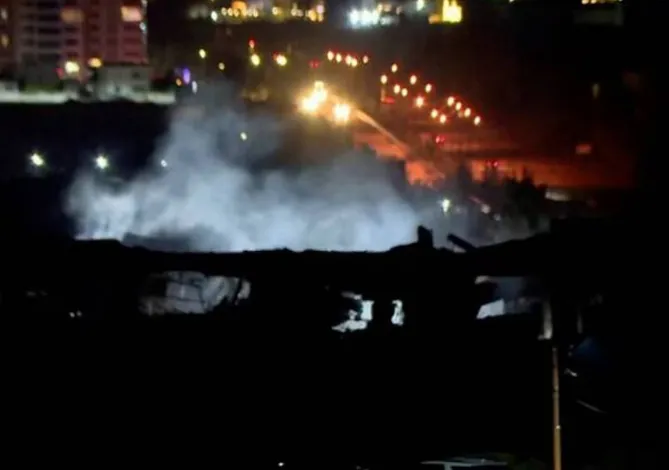Headlines in major news outlets, specifically those in the West, have moved away from Israel’s military campaign in Gaza to inflection points that have spilled over beyond that geography. As the Houthi militia in Yemen continues to target commercial shipping in the Red Sea, the past 24 hours has seen Iranian missile strikes in Syria, Iraq and now even Pakistan.
While Iranian strikes are currently under scrutiny considering the support Tehran offers to the likes of the Houthis in Yemen, Hezbollah in Lebanon amongst others, Tehran’s targets in Syria were, interestingly, geographically in similar regions where Israel has previously targeted Iran-backed militias.
In Syria, Iranian missiles, according to the country’s powerful Islamic Revolutionary Guard Corps (IRGC), targeted “espionage centers” and “gatherings of anti-Iranian terrorist groups”. While the former alluded to Israeli ecosystems, the latter is to target Islamic State (ISIS or Daesh in Arabic) strongholds.
The recent suicide terror attack in Iranian city of Kerman, near the final resting place of Qasseim Soleimani, commander of the Quds Force, who was assassinated in a US drone strike in Baghdad, was also claimed by ISIS. In a bizarre twist of fate, Iran, Israel, and the US when targeting ISIS have a common enemy, and in their operations, end up serving part of each other’s operational goals.
The attacks on Iraq are perhaps more interesting. The strikes took place near Erbil, where US troops are still based nearby. The Pentagon still has around 2,500 US troops in the country (plus 900 in Syria). Some of them have been regularly attacked by Iran-backed militias using drones and other similar weapons.
The recent suicide terror attack in Iranian city of Kerman, near the final resting place of Qasseim Soleimani, commander of the Quds Force, who was assassinated in a US drone strike in Baghdad, was also claimed by ISIS.
The politics of Baghdad is often seen as one being torn apart between US and Iranian interests. However, the current strikes in Erbil invoked a response by Baghdad as the leadership recalled its envoy from Tehran in a mark of protest. Only a few days ago, the same dispensation led by Prime Minister Mohammed Shia’ al-Sudani was preparing to remove the US-led coalition’s presence in the country altogether.
However, none of these events are new. Iran has previously attacked bases in Iraq using ballistic missiles and has continued small scale hits on US bases for an irritant factor. But the attacks inside Pakistan only a few hours after Syria and Iraq have grasped the imagination of many. Tehran’s targeting of camps run by Jaish ul-Adl (Baluch insurgent group) in Pakistan’s restive Baluchistan province was both a question of what the country’s long-term aims are, and a commentary on Pakistan’s continuing spiral into a nothing state.
Finally, there have been a few clarifications provided by Iran’s actions over the past months. First, Iran's political will to escalate more brashly has increased over the years. Second, it intends to use such mobilisation to try and consolidate support internally but also externally. And lastly, it reinforces the fundamentals that the Shia state was “rebuilt” on after the 1979 Islamic revolution.
While some call it a “catastrophic success”, there is no doubt that since 2023 Iranian security policy has been led by an act of publicising its entire gamut of strategic and tactical playing cards on the table for all to see.
This commentary originally appeared in Money Control.
The views expressed above belong to the author(s). ORF research and analyses now available on Telegram! Click here to access our curated content — blogs, longforms and interviews.




 PREV
PREV


